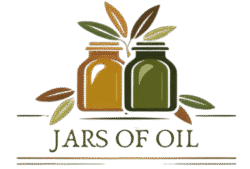Financial healing in the Black community is not just a dream — it’s a biblical calling. For too long, conversations about money in our communities have come with a mixture of pride, pain, and a whole lot of quiet struggle. Some of us were taught to never talk about money. Others were told to “just pray about it” while bills kept piling up. And let’s not even get started on what our credit reports have seen.
But here’s what I know for sure: we serve a God who doesn’t just care about our souls — He cares about our stewardship. In Deuteronomy 8:18, He says He gives us the power to create wealth. That means financial healing in the Black community isn’t just possible — it’s biblical.
Identifying the Barriers to Financial Healing in the Black Community
Yes, the odds have been stacked. Generational trauma shows up in our bank accounts, not just our bodies. Systemic barriers like redlining, wage disparities, predatory lending, and lack of financial education didn’t just disappear because the calendar flipped. But while we can’t erase history, we don’t have to be trapped by it.
From redlined neighborhoods to student loan debt that haunts us like a bad ex, the obstacles are real. Many of us never learned how to build credit, buy property, or invest — not because we’re lazy or unmotivated, but because no one taught us. Hosea 4:6 says, “My people are destroyed for lack of knowledge,” and that was hitting close to home when I was swiping my debit card on overdraft just to grab groceries.
This lack of knowledge can become generational — unless we intentionally interrupt it.
Shifting Mindsets: Money Is Not the Enemy
One of the first steps in financial healing in the Black community is breaking the lie that being rich is somehow unholy. Wanting financial freedom doesn’t make you selfish. Proverbs 11:25 tells us, “A generous person will prosper; whoever refreshes others will be refreshed.” God blesses us so we can be a blessing.
Wealth in the Kingdom isn’t about hoarding — it’s about helping. We must shift from “I’ll never have enough” to “God is my provider, and He’s given me the ability to manage well.” This mindset shift is daily work — choosing not to operate from fear or lack, but from abundance and diligence. Proverbs 21:5 reminds us, “The plans of the diligent lead to abundance.”
Debt: Breaking the Chains That Hold Us Back
Debt is one of the heaviest chains in our community. From payday loans with 300% interest to credit card balances that feel endless, debt robs us of freedom and future options. Proverbs 22:7 is blunt: “The borrower is slave to the lender.”
But debt isn’t a life sentence. Whether you use the Snowball Method (smallest debt first) or Avalanche Method (highest interest first), what matters is that you start. And please — no more payday loans. That’s not help, that’s financial bondage.
Faith-based financial counseling can be a game changer, and programs like Financial Peace University offer roadmaps for real change. You’re not a failure for needing support — you’re wise for seeking it.
Rebuilding Black Wall Street Through Financial Healing
We come from a rich legacy of creators, innovators, and entrepreneurs. Black Wall Street in Tulsa, Oklahoma, in 1921 was a thriving, self-sufficient community filled with Black-owned businesses. The Harlem Renaissance proved again that, when resourced and supported, we flourish.
Today, movements like The New Black Wall Street Market in Stonecrest, Georgia, are continuing that legacy. It’s more than shopping — it’s about circulating dollars, building ownership, and rewriting the narrative.
Even if you can’t be there physically, you can live the mindset: bank Black, support Black-owned businesses, invest in your community, mentor young entrepreneurs, and teach your children about financial literacy.
Ownership and Investing: Building Generational Wealth
Ownership is power. Not for show, but for security. A house isn’t just a home — it’s equity and legacy. If you’re renting, start planning for ownership now.
Investing isn’t just for “rich people.” You can start with as little as $25 in a Roth IRA, stocks, or real estate investment trusts (REITs). The point isn’t how big you start, it’s that you start. Proverbs 13:22 says, “A good man leaves an inheritance to his children’s children.”
Group Economics: Making Financial Healing a Movement
True financial healing in the Black community will require group economics. That means supporting Black-owned businesses consistently, forming investment clubs, teaching budgeting in churches, and mentoring the next generation.
The early church “sold property and possessions to give to anyone who had need” (Acts 2:45). This wasn’t just kindness — it was a strategy. Sharing knowledge and resources is how we grow together.
You’ve Got the Power to Walk in Financial Healing
This isn’t about shame — it’s about strategy. Check your credit. Make a debt repayment plan. Open an investment account. Shop intentionally. Pray for wisdom — James 1:5 says He gives it generously when we ask.
You don’t have to be wealthy to start. You just need to be faithful with what’s in your hands right now. Let’s stop surviving and start stewarding. Not just for us — but for the generations to come.
You ready? Let’s move.
Practical Resources for Financial Healing in the Black Community
-
We Buy Black – Marketplace for Black-owned businesses
-
Greenwood Bank – Digital banking for the culture
-
Financial Peace University – Faith-based money management
-
National Black Bank Foundation – Supporting Black-owned banks
📥 Download the free 1-week devotional — Jars of Oil: Faith-Based Devotional Guide for Breaking Financial Barriers in the Black Community





